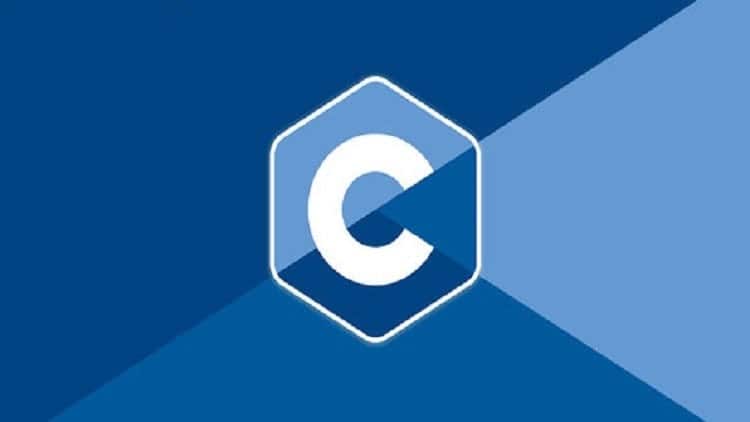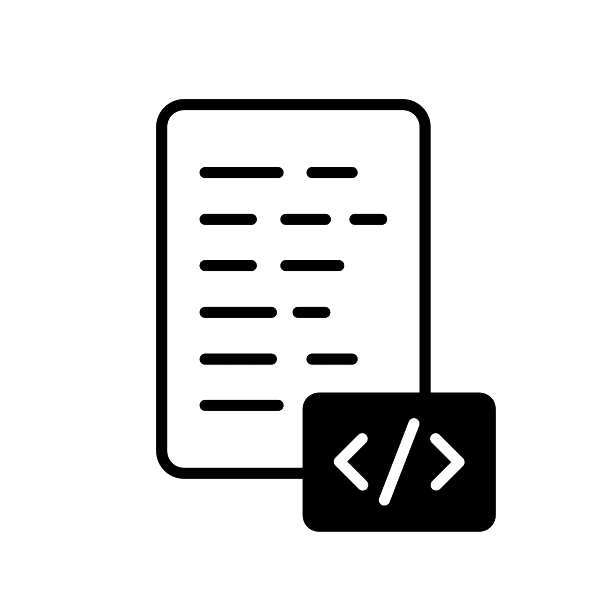Master the “mother” language of coding: Learn C and unlock the gateway to programming excellence.

Nuestros profesores y tutores se graduaron de las mejores universidades.








Resumen

Plan de estudios de codificación personalizado
Elija los lenguajes de programación o temas que le interesen y lo conectaremos con un tutor calificado para un dominio individualizado.

Lecciones de codificación ajustables
Organice lecciones en horarios que le convengan, ya sea para una introducción breve o una exploración exhaustiva; usted tiene el control de su recorrido de aprendizaje.

Instrucción individualizada uno a uno
Tu progresión educativa está diseñada para adaptarse a tu velocidad y a los obstáculos seleccionados, garantizando un crecimiento ininterrumpido sin distracciones ni demandas conflictivas.
Acerca de C
The C programming language, originally developed in the early 1970s, has an enduring legacy that continues to shape the realm of programming. Its low-level capabilities make it ideal for system programming, including operating system kernels and hardware drivers. What sets C apart from other languages is its blend of efficiency and simplicity, offering unparalleled performance when it comes to system-level tasks.
A striking feature of C is its portability, which allows for the development of software that can run on various hardware platforms. This makes C especially beneficial for embedded systems, where resources are often limited and performance is critical. The language provides direct access to the computer’s memory through pointers, enabling efficient manipulation of data structures and rapid execution of programs.
C is frequently regarded as the universal language of programming, providing the building blocks for other high-level languages like C++, Python, and Java. Its syntax and fundamental concepts have influenced numerous modern programming languages, showcasing its foundational importance. Mastering C can serve as an excellent stepping stone for learning other languages and technologies, making it invaluable for anyone aspiring to become a versatile developer.
The C Standard Library enriches the language’s functionality by offering a collection of functions for tasks such as input/output operations, string manipulation, and memory allocation. This library is remarkably useful, as it standardizes these operations across different operating systems, thereby ensuring code reusability and maintainability.
Furthermore, the active community around C continues to contribute to its vast ecosystem, comprising of a wealth of open-source libraries and tools. With a mature and supportive community, programmers have ample resources for learning, debugging, and enhancing their coding skills in C.
From system software to databases, from computer graphics to machine learning, C’s range of applications is vast, reflecting its versatility and indispensability in the modern technological landscape. Given its longevity and sustained relevance, learning C is akin to acquiring a timeless skill, a fundamental understanding of the inner workings of computers that will serve you well in any computing endeavor.
Descripción
Understanding C programming can accelerate your grasp of other languages, as it’s foundational and often considered the “mother language” of modern programming. Known for its speed compared to languages like Python or Java, C has found a niche in various domains such as gaming, banking, IT, education, and more. Get the fundamentals down pat and build your first program in this course.
Qué aprenderás...
- Explore fundamental concepts like enums, data types, nested loops, loop control, pointers, and arrays.
- Build your first program, applying the principles covered in the course.
Requisitos
- Edades 13 - 18
- Comprensión básica de la terminología de programación.
Preguntas frecuentes de los estudiantes sobre la codificación con C
C is considered a foundational language in computer science. Learning C can provide a deep understanding of how software interacts with hardware, which can be invaluable as you progress to more high-level languages. Its syntax is straightforward, making it easier for beginners to focus on understanding the core concepts of programming.
Absolutely! Despite being one of the older programming languages, C continues to be relevant. It is commonly used in system programming, embedded systems, and even in modern software applications. Knowing C can give you a competitive edge in fields like cybersecurity and data science.
While C, C++, and C# share similar names, they are distinct languages. C is procedural, while C++ is an extension that adds object-oriented features. C# (C Sharp) is a language developed by Microsoft for the .NET framework, more geared towards web and Windows applications. Knowing C can make it easier to learn these other languages, but they are not the same.
To start coding in C, you’ll need a text editor to write your code and a compiler to translate it into machine language. Many Integrated Development Environments (IDEs) like Code::Blocks or Visual Studio provide these tools in one package. There are also numerous online tutorials, books, and courses tailored for beginners.
Beginners often make mistakes like neglecting to initialize variables, improperly allocating memory, or ignoring compiler warnings. Understanding the debugging process and carefully reading error messages can be helpful for avoiding these pitfalls.
¿Cómo funciona?
1
Solicitar un tutor
Háganos saber sus objetivos y rango de edad. Desarrollaremos un plan para ayudarle a llegar allí.
2
Emparejar con un tutor
Te recomendaremos un tutor en función de tus necesidades y objetivos, o puedes solicitar un tutor específico.
3
Iniciar una prueba gratuita
Experimente una lección de prueba gratuita con su nuevo tutor y vea si su estilo de aprendizaje coincide.
4
¡Seguid así!
Si todo ha ido bien, ¡regístrate para seguir adelante! Puedes elegir el ritmo de las lecciones.
¿Necesita más información?
Hablemos.
Deje su número de teléfono y le devolveremos la llamada para analizar cómo podemos ayudarle.


